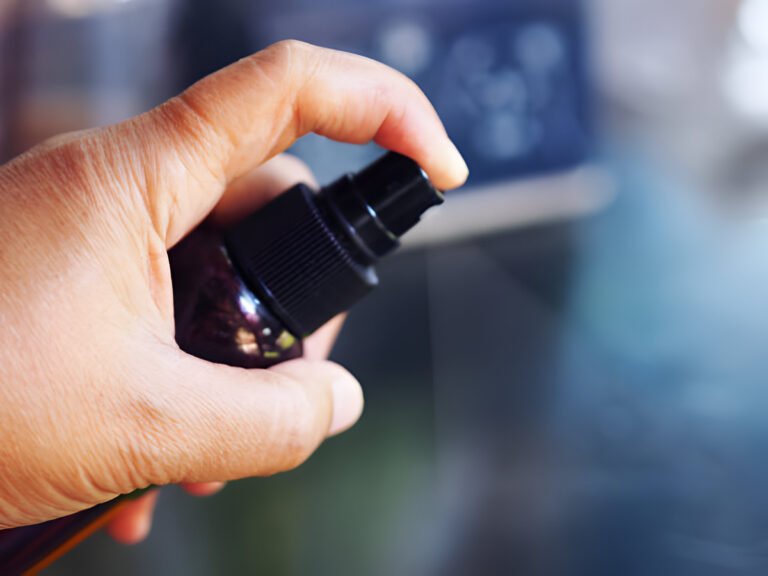Image Credit: Getty image
In today’s society, knowing how to smell good naturally is not just a matter of personal preference but a crucial aspect of social interaction and self-care. With a myriad of products such as deodorant, soap, shampoo, and body wash at our disposal, the quest to eliminate sweat and maintain a pleasant fragrance has never been more accessible. However, the reliance on chemical-laden products to manage body odor can sometimes be overwhelming and counterproductive. This article delves into effective tips and tricks that harness natural methods and ingredients, offering a sustainable and health-conscious approach to smelling good without compromising on efficacy.
The journey toward a naturally pleasant scent begins with daily hygiene best practices, incorporating essentials like brushing teeth, using floss, and choosing the right shampoo and soap. Beyond personal grooming, scent amplifiers such as body oil and moisturizer play a significant role, while managing clothes and fabrics through clean shoes and sheets can drastically improve how we smell. Dietary considerations and lifestyle habits, including the use of antiperspirant and mouthwash, further influence our natural scent. By exploring these areas, the article provides a comprehensive guide on maintaining a fresh and appealing fragrance naturally, ensuring that readers can confidently navigate their way to smelling good through simple, yet effective means.
Daily Hygiene Best Practices
Maintaining good personal hygiene is fundamental to smelling good naturally. By focusing on regular practices such as bathing, oral care, and managing body hair, individuals can effectively minimize body odors and enhance their overall freshness. Here are the essential daily hygiene best practices to incorporate:
Regular Bathing
Showering or bathing daily with soap or body wash is crucial for removing bacteria and sweat that contribute to body odor. It is particularly important to clean areas where sweat accumulates, such as armpits, feet, and the groin area. Using antibacterial soap can further help in reducing the growth of bacteria on the skin. For those concerned about skin dryness, bathing several times a week may suffice, focusing on cleanliness without stripping the skin of its natural oils.
Brushing Teeth and Flossing
Oral hygiene plays a pivotal role in how one smells. Brushing teeth twice a day with fluoride toothpaste and flossing daily are essential to prevent the buildup of bacteria that cause bad breath. It’s also beneficial to brush the tongue or use a tongue scraper to remove odor-causing bacteria. Regular dental check-ups and cleanings can help address any underlying issues that might contribute to bad breath.
Shaving and Hair Management
Keeping body hair under control, particularly in areas like the armpits, can significantly reduce the accumulation of sweat and bacteria, thereby decreasing body odor. Shaving or trimming body hair regularly ensures that sweat evaporates quicker and reduces the time it has to interact with bacteria. Choosing the right products for hair care, including shampoo and conditioners that suit one’s hair type and scalp condition, also contributes to a cleaner and fresher scent.
By integrating these practices into daily routines, individuals can effectively manage their body odor and maintain a pleasant, natural scent throughout the day.
Scent Amplifiers
Perfume Application Techniques
To maximize the effectiveness of perfume, one should focus on applying it to pulse points where the body naturally emits more heat. These areas include the wrists, inner elbows, behind the ears, and the back of the knees. The warmth of these spots helps to naturally diffuse the scent throughout the day. It is also beneficial to apply perfume after a shower when the skin is still warm and the pores are open, which allows the fragrance to meld seamlessly with the natural oils of the skin. For a lasting effect, avoid rubbing the perfume into the skin as this can break down the scent molecules and cause the fragrance to evaporate faster.
Using Body Mist and Sprays
Body mists are lighter alternatives to perfumes and are ideal for a subtle hint of fragrance. For best results, body mists should be applied directly to the skin after moisturizing, as this helps to lock in the scent. When using body mists, it is advisable to spray them sparingly to avoid overwhelming the olfactory senses. Additionally, applying the mist to clothing can prolong the scent’s longevity, though one should be cautious with fabrics that may stain easily.
Scented Lotions and Creams
Incorporating scented lotions or creams into your daily routine can amplify your fragrance while moisturizing the skin. Applying a lotion or cream that complements your perfume can enhance the overall scent experience. For those with sensitive skin, it is important to choose products that are gentle and free from harsh chemicals that can irritate the skin. Layering scented lotions with your perfume not only extends the fragrance’s durability but also provides a rich, full-bodied scent that remains subtle yet noticeable throughout the day.
Managing Clothes and Fabrics
Maintaining freshness in clothes and fabrics is essential for anyone looking to smell good naturally. This section covers practical tips for wearing fresh clothes daily, using scented sachets in drawers, and general laundry tips to keep your garments smelling pleasant.
Wearing Fresh Clothes Daily
It is crucial to wear fresh clothes each day to avoid body odors lingering on fabrics. Ensuring clothes are completely dry before storing them prevents musty smells. Additionally, storing garments in a cool, dry place with good air circulation helps maintain their freshness.
Scented Sachets for Drawers
Incorporating scented sachets into drawers and closets can significantly enhance the aroma of your clothes. These sachets, often filled with dried natural flowers or herbs, release a subtle fragrance that keeps clothes smelling fresh. Place them between folded clothes, inside shoe racks, or even in gym bags to extend the freshness.
Laundry Tips
To keep laundry smelling fresh, start by cleaning your washing machine regularly to prevent odor buildup. Using natural alternatives like vinegar as a fabric softener during the rinse cycle can help eliminate lingering smells. For a thorough clean, wash smaller loads and consider adding baking soda to neutralize odors. After washing, opt for air-drying clothes outdoors when possible to imbue them with a natural, fresh scent. Lastly, embrace the use of natural fragrance products in your laundry routine to maintain a pleasant aroma without relying on synthetic scents.
By adopting these practices, individuals can ensure their clothes and fabrics contribute positively to their overall scent profile, enhancing their natural appeal through well-managed garments.
Dietary Considerations
Foods to Avoid
Certain foods can exacerbate body odor due to their high sulfur content or the way they are metabolized. Foods like garlic, onions, red meat, and certain vegetables such as broccoli and cauliflower are known for their potential to produce a pungent body odor. Additionally, spices such as curry and cumin, along with alcohol, can increase sweat production and intensify body smells. Avoiding these foods may help in maintaining a more neutral body scent.
Hydration Tips
Hydration plays a crucial role in controlling body odor. Drinking ample water each day helps flush out toxins that can contribute to unpleasant smells. It is recommended to drink at least eight glasses of water daily to ensure proper hydration. Including caffeine-free teas like chamomile and peppermint, as well as water-rich fruits such as cucumbers and watermelons, can also aid in maintaining optimal hydration and reducing body odor.
Detoxifying the Body
Incorporating a diet rich in fruits and vegetables can significantly help detoxify the body. Citrus fruits, in particular, contain citric acid which aids in flushing out toxins that lead to body odor. Regular consumption of these fruits, either whole or infused in water, can be beneficial. Additionally, ensuring regular bowel movements through adequate fiber intake is essential for removing toxins efficiently, thus reducing the potential for odors to develop.
Lifestyle Habits for Smelling Good
Staying Active and Clean
Staying active plays a pivotal role in maintaining a fresh scent. Engaging in regular physical activity helps to flush out toxins through sweat, which can improve skin health and reduce body odors when followed by proper hygiene practices. It’s essential to shower immediately after exercising to remove sweat and prevent bacterial growth. Additionally, managing body hair and ensuring clothes are fresh post-workout contribute significantly to staying odor-free.
Avoiding Overpowering Scents
While fragrances can enhance personal scent, it’s crucial to use them judiciously. Overpowering scents can be overwhelming and may cause discomfort or allergic reactions in sensitive individuals. Opting for lighter fragrances or applying perfume minimally at pulse points ensures a pleasant, subtle presence. For environments like offices or public transport, where close proximity is common, it’s considerate to use mild scents to respect others’ space and comfort.
Maintaining a Clean Environment
A clean living environment also affects how one smells. Regularly cleaning and ventilating spaces like bedrooms, bathrooms, and kitchens can significantly reduce lingering odors. Using natural cleaning products and avoiding harsh chemicals helps maintain a fresh air quality. Simple practices such as washing bedding and curtains frequently, and keeping surfaces dust-free, play a crucial role in creating a pleasant and odor-neutral home environment. Incorporating plants that purify the air can also naturally enhance the freshness of your living space.
Conclusion
Embracing natural methods to maintain a pleasant scent not only contributes to personal hygiene and appeal but also aligns with a health-conscious lifestyle attentive to the impact of chemicals on our bodies and environment. Throughout the article, we explored a gamut of strategies ranging from daily hygiene practices, the judicious use of scent amplifiers like perfumes and body lotions, to dietary adjustments and maintaining a clean living environment. These measures, when integrated into one’s routine, underscore the feasibility of smelling good naturally, fostering not only an enhanced sense of self but also a harmonious relationship with the natural world around us.
The emphasis on natural ingredients and practices serves as a reminder of the simple yet profound ways in which we can care for ourselves and the planet. By prioritizing naturally derived options over synthetics, individuals can contribute to a larger paradigm shift toward sustainability and holistic well-being. As we continue to navigate the complexities of modern living, the knowledge and insights provided here pave the way for further exploration into how we can maintain our personal freshness in ways that are both effective and environmentally conscientious, encouraging a mindful approach to personal care.
FAQs
1. How can I naturally enhance my body’s scent?
To naturally improve your body odor, maintain good hygiene by taking daily showers, applying antiperspirant or deodorant, and wearing fresh clothes. Keeping your skin moisturized, monitoring your diet, staying hydrated, and using durable perfumes or colognes can also help.
2. What’s the secret to consistently smelling fresh?
The key to consistently smelling good lies in adhering to proper hygiene. Regular showers are crucial as they prevent the buildup of sweat, dirt, sebum (natural oils), and dead skin cells on your skin, which are primary contributors to bad odors.
3. Why do some individuals naturally emit a pleasant scent?
Some people naturally smell better due to their healthy dietary and lifestyle choices. They typically consume fewer strong-smelling foods such as onions, garlic, and asparagus. Daily cleansing also plays a significant role by keeping the skin clear of impurities and less clogged.
4. How can I enhance my sense of smell?
To improve your sense of smell, consider these tips: Smile with your eyes, think of something humorous, hold the camera slightly above eye level when taking photos, slightly part your teeth while smiling, keep your smile relaxed and subtle, lick your teeth before a photo is taken to make them shine, ensure your smile is symmetrical, and maintain good posture.
















+ There are no comments
Add yours